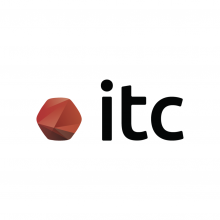
There are 5 Companies in Vietnam
that provide Data Analysis Services!
As Vietnam moves from low-tech manufacturing to a service-oriented economy. The country’s information technology (IT) market is increasingly gaining traction, giving competition to IT firms in China and India. This has partly been encouraged by the growth of Vietnam as a regional market for domestic enterprises and global technology vendors.
Discover Top IT Companies in Vietnam specialized in Data Analysis and other related services. Find the best IT service providers for your projects.
Data analysis services help businesses make sense of their data. They collect, clean, and analyze data to uncover valuable insights, patterns, and trends that can inform decision-making and strategy.
More than 644 verified and trusted IT companies specialize in providing data analysis services. These companies offer a range of expertise, from data scientists to data engineers. Notable IT companies in this field include IBM, Deloitte, and Accenture.
Handpicked companies • No obligation to hire • 100% risk-free
Explore Top Data Analysis Companies in Vietnam

Ho Chi Minh City, Vietnam Head office in: China
IT Consultis (ITC) is an award-winning digital consultancy in China & APAC, guiding Fortune 500s with MarTech, eCommerce & Omnichannel solutions.

Leading.vn - Digital Marketing & SEO Agency Vietnam Verified Company
Ho Chi Minh City, Vietnam Head office in: Vietnam
We help businesses with SEO, SEM, Social Media Paid Advertising, Content Marketing and much more, even with Online Reputation Management!
Services:
Social Media Agency for Business Impacts
Services:

RedFern Digital Verified Company
Ho Chi Minh City, Vietnam Head office in: China
We are an award-winning independent brand management agency that develops and distributes brands across Asia. We make brands have IMPACT.
Filter Data Analysis Companies in Vietnam by Cities
Find the right tech company near you or from a specific city. Some of the best companies might be located in smaller cities.
Find more Data Analysis companies around the world
TechBehemoths is the world's most advanced and user-friendly platform to match IT Companies with real clients without hustle.
The ICT Industry in Vietnam: Market Overview and Trends
As Vietnam moves from low-tech manufacturing to a service-oriented economy, the country’s information technology (IT) market is increasingly gaining traction, giving competition to IT firms in China and India. This has partly been encouraged by the growth of Vietnam as a regional market for domestic enterprises and global technology vendors.
Why You Should Work With Vietnamese IT Companies
Local software producers mostly provide their products to the government and small and medium-sized enterprises, while larger Vietnamese companies generally look to multinationals for software. As internet infrastructure starts to improve, more demand for areas such as software as a service (or, on-demand software) and other cloud-computing services should pick up.
What You Should Pay Attention to When Working With Vietnamese IT Companies
The underdeveloped IT sector and infrastructure, as well as a relatively low level of education in IT, make Vietnamese companies less attractive to foreign customers. Additionally, IT companies and web agencies from Vietnam face systemic problems with cybersecurity, piracy rate, and efficient communication, among others.
Cybersecurity is a particular vulnerability for Vietnam, and one of the most notable cases happened in 2016, when an alleged Chinese hacker group, 137CN, carried out some cyberattacks on Vietnam’s airports as well as the official website of the national flag carrier Vietnam Airlines, in which the airline’s customer database was stolen and made public on the internet.
In 2019, there were a total of 31,500 security incidents in the country, according to the Vietnam Computer Emergency Response Team. In the first half of 2020 alone, the number of incidents was 4.4 times higher compared with a year earlier. In 2025, the cyberattacks continued with 179 more attacks, mostly attributed to the group Anonymus VNLBN.
How Reliable Are Vietnam-based IT Companies
Under the strongly growing digital economy, major opportunities are opening for investors, especially those who want to provide products and services based on new technologies. Combining this and the cheap market price, investors rely on Vietnamese IT companies to provide the needed digital services.
But the situation is different in the regional market, where potential clients have a wide range of countries and companies to choose from for their web or software projects.
Why Outsource Software/Web Development to Vietnam?
Vietnam is an appealing destination for outsourcing software and web development due to the various perks it provides. It has a fast-growing tech sector with more than 1.2 million workers in over 74,000 IT companies. It is cost-effective to outsource web and software development in Vietnam, with hourly prices of $20-$45, compared to the US costs $65-$130. The country’s rich talent pool has over 560,000 new employees in 2024-2025, and between 50,000-60,000 students who choose to learn computer science or other IT domains. Additional benefits include a stable government and a favorable investment ecosystem.
How Does the Vietnamese IT Industry Relate to the Neighboring Countries
IT Outsourcing services generate around $777.36 million by 2025, Statista reports. However, Vietnam is still a boutique market when it comes to outsourcing and lags behind its regional peers, such as India and the Philippines, which earned $12.41 billion and almost $800 million, respectively, from providing IT services the same year.
What is Data Analysis and what are its benefits for your projects?
Data analysis services help businesses make sense of their data. They collect, clean, and analyze data to uncover valuable insights, patterns, and trends that can inform decision-making and strategy.
More than 644 verified and trusted IT companies specialize in providing data analysis services. These companies offer a range of expertise, from data scientists to data engineers. Notable IT companies in this field include IBM, Deloitte, and Accenture.
Data analysis service providers use various tools and technologies to work with data effectively. Commonly used tools include statistical software like R and Python, data visualization tools like Tableau and Power BI, and big data platforms such as Hadoop and Spark. Cloud computing platforms like AWS and Azure are also popular for data storage and analysis.
Data analysis services are often part of a broader range of data-related services, including:
-
Data Visualization: Creating graphical representations of data for better understanding.
-
Business Intelligence: Developing dashboards and reporting systems for data-driven decision-making.
-
Predictive Analytics: Forecasting future trends and outcomes based on historical data.
-
Data Engineering: Building data pipelines and infrastructure for data storage and retrieval.
-
Machine Learning and AI: Leveraging advanced algorithms to automate data analysis and predictions.
Selecting the right IT company for data analysis services involves considering factors like the company's experience, domain expertise, client references, and the range of services they offer. Look for a company that aligns with your specific data analysis needs, whether it's for business intelligence, marketing, finance, or any other domain.
Data analysis service providers are essential for various projects, including:
-
Market Research: Analyzing customer behavior and market trends.
-
Financial Analysis: Assessing investment opportunities and managing risks.
-
Healthcare Analytics: Extracting insights from patient data for better healthcare outcomes.
-
Supply Chain Optimization: Improving logistics and inventory management.
-
Customer Insights: Understanding customer preferences and enhancing user experiences.
-
Fraud Detection: Identifying unusual patterns in financial transactions.
Most of the times, these services are valuable for companies across industries, including but not limited only to:
-
Retail: Analyzing sales data to optimize inventory and promotions.
-
Finance: Managing investments, risk assessment, and fraud detection.
-
Healthcare: Improving patient care, disease prediction, and drug discovery.
-
Marketing: Enhancing customer targeting and campaign effectiveness.
-
Manufacturing: Optimizing production processes and quality control.
-
Technology: Utilizing data for product development and user experience enhancement.
Data analysis services can provide valuable insights, but it's crucial to have clear objectives and questions you want to answer with the data. Communicate your goals clearly with the service provider to ensure that the analysis aligns with your needs. Data privacy and security should also be a top consideration when sharing sensitive data with a service provider.

